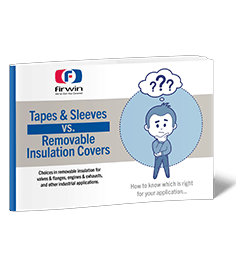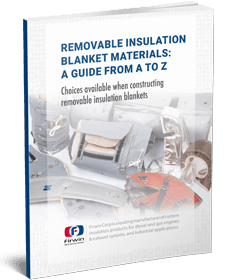There are many types of insulation available, each with unique characteristics. Choosing one that meets the needs of your application and will perform well in its operating environment is critical. Many insulation applications are exposed to high temperatures and require materials that will not burn. Fiberglass is a popular insulation material whose characteristics and benefits , include fire retardancy, that make it suitable for a range of applications.
Fiberglass Insulation and Its Benefits
Fiberglass is composed of silica sand, limestone, and soda ash. The limestone and soda ash lower the melting point of the silica sand, which is used to create the glass. Depending on the required end performance characteristics, other ingredients such as feldspar, borax, magnesite, or kaolin clay might be added. After the ingredients are mixed, they are heated and form fibers and filaments.
Fiberglass products can be adapted to meet application-specific requirements. For example, adding anti-static coatings or lubricants to reduce abrasiveness are common customizations. Fiberglass has many benefits that have made it such a popular insulation material. It is strong but lightweight and easily moldable into complex shapes. As an insulation material, it has several advantages:
- High mechanical strength with a resistance greater than steel
- Insensitivity to temperature variations
- Inability to rot and is resistant to insect or rodent activity
- Suitable for electromagnetic windows due to its dielectric permeability
- Provides excellent electrical insulation even in low thicknesses
Additionally, fiberglass is odorless, excellent at absorbing sound, and won’t corrode metals. It can be made into insulation blankets, tape, cloth, or even rope. Fiberglass is classified into five major types that vary according to the raw materials used. Each type is best suited for specific applications, ranging from making process equipment to insulating electrical components, and more.
Will Fiberglass Insulation Burn?
Fiberglass insulation is non-flammable. Since it is made from non-flammable minerals, it is naturally incombustible and doesn’t emit smoke or other toxic emissions when exposed to heat. However, it is important to note that the paper and foil backings fiberglass insulation is often attached to can burn, especially if flame-retardant backings are not used.
If exposed to temperatures above 1,000 ºF, fiberglass will melt. If fiberglass melts, it can disperse heat to nearby materials that might be flammable, and it releases oxygen that feeds fires. The maximum temperature limit for fiberglass insulation is 1,200 ºF.
Fiberglass Insulation Applications
Fiberglass has many uses and applications across industries. It is used to manufacture ducting and enclosures for the aerospace industry, car bodies for the automotive industry, fountains and aquariums, and so much more. Fiberglass insulation’s chemical and corrosion resistance make it valuable to many industries. Some of the most common applications of fiberglass insulation include:
- Furnaces and boilers
- Ovens and kilns
- Compressors
- Catalytic converters
- Chillers
- Dryers
- Expansion joints
- Engine and exhaust components
- Flanges
- Heat exchangers
- High-pressure steam piping
- Turbines
- Incinerators
- Welding
Since fiberglass is durable and provides insulation at high temperatures, it is widely preferred in many industrial applications. For example, the power generation industry relies on fiberglass’ non-conductive properties for many applications. The mining industry uses fiberglass grating in electronic refining areas due to its ability to resist chemical corrosion. The chemical, paper, food processing, and several other manufacturing-related industries use fiberglass grating to provide safe, anti-slip surfaces.
Fiberglass Insulation from Firwin Corporation
There are countless fiberglass insulation products are on the market suitable for applications in many industries. While fiberglass products can’t burn, it’s important to note that they do melt at extreme temperatures, which is an important consideration when selecting an insulation material. Firwin provides a comprehensive selection of insulation solutions, including fiberglass products. To find out more, contact us today or request a quote to get started on a customized solution.



